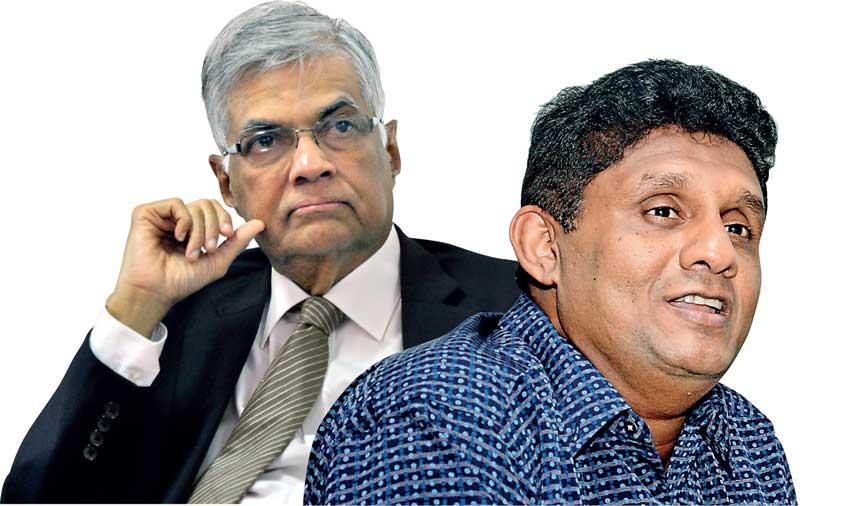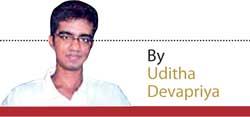Governed by task force, led by president SL combats Pandemic While Opposition flounders

- The opposition should be doing more than just dithering and pointing out every negligible flaw of the government’s action plan
- The parliament, despite the former opposition’s berating, has not been reconvened, and so, we are told, a constitutional crisis is in the making
 I’m
just saying: the government must have done something right. For a
country of 21.7 million we’ve managed to keep down patient numbers and
mortality rates remarkably. It’s not just the numbers of course. For the
first time in many years, the people have actually begun to trust their
professionals, from the medics to the military. The last time we
reposed this much trust on the army, the STF, and the police was Easter
last year, and that was a one-time, though avoidable and deeply
regrettable, tragedy. COVID-19, on the other hand, will not go away any
time soon – it will, but only as long as the port and the airport are
secured, and everyone coming in is tested and quarantined – and so far
as it stays with us, whether we like it or not, we will continue to have
confidence in the doctors, the nurses, and the boys and girls in the
army, the navy, and
I’m
just saying: the government must have done something right. For a
country of 21.7 million we’ve managed to keep down patient numbers and
mortality rates remarkably. It’s not just the numbers of course. For the
first time in many years, the people have actually begun to trust their
professionals, from the medics to the military. The last time we
reposed this much trust on the army, the STF, and the police was Easter
last year, and that was a one-time, though avoidable and deeply
regrettable, tragedy. COVID-19, on the other hand, will not go away any
time soon – it will, but only as long as the port and the airport are
secured, and everyone coming in is tested and quarantined – and so far
as it stays with us, whether we like it or not, we will continue to have
confidence in the doctors, the nurses, and the boys and girls in the
army, the navy, and the air-force.
Spearheading all their efforts, issuing directives, granting them
carte-blanche and sweeping powers, is the government. But then there is
no real government: it’s , the military, the doctors and nurses, and
below them, the councillors and governors. The parliament, despite the
former opposition’s berating, has not been reconvened, and so, we are
told, a constitutional crisis is in the making, or has been made.
Meanwhile, the same forces that yearn for this reconvening of
parliament, bringing back an unrepresentative lot – unrepresentative
because the numbers and proportions of the old parliament in no way
reflect the electoral demographics in place now – seem to want to
continue delaying elections. They must be used to it by now: for over a
year, when they were in power, they delayed provincial and local
government elections, giving way only when it was clear that, try what
they might, they would lose. In that context the regime seems to be
flourishing, and the opposition seems to be floundering. Not even
COVID-19 has brought the two fragile splinters of the opposition
together: in fact we’ve had no real attempt at forging a unified
alliance against the government by the Ranil-led UNP and the Sajith-led
SJB, or the elephant and the telephone. The only interactions between
the two has been ones of friction: a press release by the SJB accusing
the UNP of bankruptcy in allegedly claiming that some of its members met
Ranil Wickremesinghe to talk about rejoining the party, and a petition
filed by the UNP’s Oshala Herath seeking the dismissal of the SJB’s
nomination papers. The populist opposition is hell-bent on pointing out
the regime’s flaws, of which there are several, but without unity with
its parent party, which too is hell-bent on pointing out those flaws,
all we get is a headless body on the one hand and a bodiless head on the
other battling a many-headed Hydra.
Having chucked out the coming-together option, the SJB and UNP are now
having recourse to the parliament-must-be-reconvened route since it
affords them the best of both worlds, giving them an opportunity to play
opposition without the benefit of an election where they would have to
contest as two entities. Constitutional implications aside, including
those cited by the astute Mr Sumanthiran and by those who filed the
petition against the upcoming elections, this is the only real practical
way out for an opposition battered, bruised, and beleaguered by years
of inaction. For the truth is, and we must acknowledge the truth, that
neither the UNP nor the SJB, nor the JVP, has shown itself to be up to
the task of equalling the Joint Opposition’s campaigns during the
yahapalana years. The SJB is yet to show itself to be the equal of the
JO in that respect, and despite what commentators, even those like me,
who see in him a youthful, moderate, preferable alternative to Ranil
Wickremesinghe, can say, there is a gap between the image Sajith
Premadasa projects to the world and the harsh, all too real
circumstances he’s had to work with, and work against.
I find this intolerably inexcusable. Inexcusable, because the opposition
should be doing more than just dithering and pointing out every
negligible flaw of the government’s action plan. When all you can come
up against the administration’s task force are images of its members
gathering for a photo op with the president without masks on, and when
all the mud you can afford to throw is a photo of a prominent tuition
master, who frequently talked against the former government in the
lead-up to last year’s election, joining hands with that task force, you
know that as an opposition you have no real argument. By contrast, the
arguments and the criticisms that matter – including the plight of the
daily wage-earner, the shocking contrasts of prices between regions, and
the inability of the poorest in certain Grama Niladhari divisions to
get the Rs. 5,000 promised to them by officials – don’t appear to be
getting much emphasis in the popular press. I can only conclude that
these don’t matter much to a party flirting with a suburban middle
class, at least not so much as the constitutional arguments, mask-less
task force briefings, and tuition master photo-ops.
The pandemic brought to the fore a significant political rift fissure,
between the government in the form of parliamentary representatives and
the bureaucratic apparatus in the form of the task force. People,
unanimously or almost unanimously – barring certain sections of “civil
society” which see, and are concerned about, increased militarisation in
the country, as D. B. S. Jeyaraj in a provocative and discerning
article in the Daily Mirror has pointed out – seem to prefer the latter
to the former: the rank and file of the task force to the rank and file
of the parliament. This is why protests against holding elections are
made not just by supporters of the opposition, but also by supporters of
the regime. What is important to note is that in making that crucial
distinction, the latter conflate the task force, which they want to
continue even at the cost of elections, with Gotabaya Rajapaksa. Ergo,
and to put it pithily, they want the latter to rule with or without
parliament.
In other words, the Gota factor has achieved, inadvertently due to this
pandemic, what I predicted it would achieve several months ago. I
observed then that Gotabaya Rajapaksa had two routes to take, and the
people who propped him into power were in awe, not of the stooges
surrounding him, not even of the former Joint Opposition led by Mahinda
Rajapaksa which they now overwhelmingly view with contempt and derision,
but of the Viyath Maga cabal: the bureaucratic apparatus of which the
shining lights now are, in one form or another, in the COVID-19 task
force. I cautioned then that this would lead to general distrust among
even the new government’s supporters with not just the JO, but even the
whole bunch of MPs drawn from both the government and the opposition. I
see that distrust acutely, and I would say dangerously, with calls made
by supporters to not hold elections, to continue with a government by
task force, with sweeping powers for the president and the military,
and, if push comes to shove, with no parliament.
If the rallying cry of those who want one-man-rule is continuity without
elections, and the president can wait without reconvening the old
parliament when it isn’t his obligation to do so, the question to be
asked is why the opposition is adamant on picking on the reconvening
option without even once calling for elections. The spurt in confidence
in the task force, and the man leading it, has led to even the most
neutral observer opposed to Gotabaya Rajapaksa to call for indefinite
rule by task force. This sets a rather dangerous precedent: the
president now has carte-blanche to invoke the doctrine of necessity to
suspend democratic life. I am not saying he has done it or that he will.
But it gives him the space and the freedom to do so, now or later.
Given this backdrop, it’s rather futile, if not funny in an unfunny way,
that the opposition, as well as the FR petitioners, call for the
cancellation or the postponement of elections when it would pave the way
for continued rule by one man, a man who has moreover argued that
elections as a litmus test of democracy should be held. Gotabaya has
literally handed down the argument against continued rule by him – “I
didn’t know I’d be handling something like this when I got power!” he
chortled at his soon-to-be-formed task force when they met in
pre-lockdown March – and it’s something that the opposition, which calls
for delaying elections (because, well, they think they know who’ll
lose) would do well to note. In the interests of legitimacy and
democracy, elections must be held; otherwise we’ll end up in a situation
where one man, and one task force, runs the country. The only option
the SJB and the UNP have given us is also undemocratic, since
reconvening an old parliament is no different to reviving an
unrepresentative one. The answer, as always, thus lies in the ballot
box.
UDAKDEV1@GMAIL.COM


